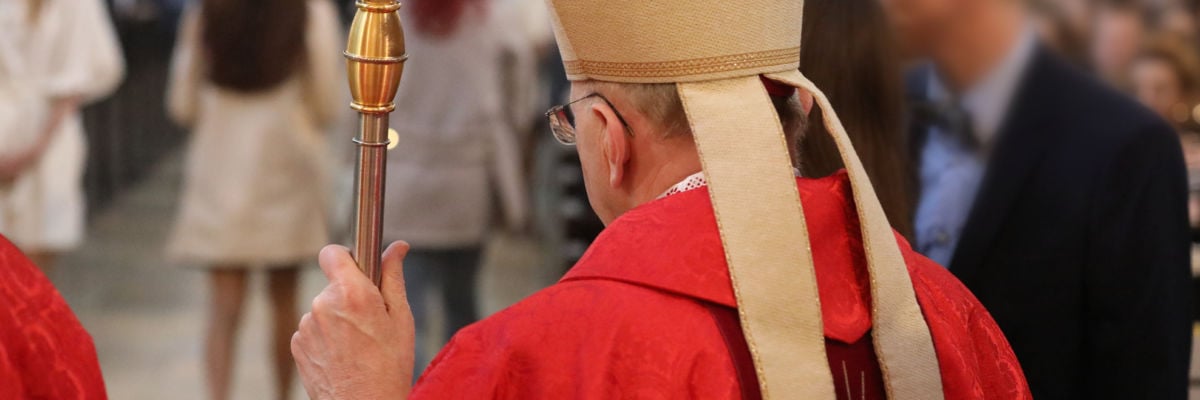C
Catholic361
Guest
What does the faith teach about excommunicateion now is it still a thing or has this teaching of the church not being talked about or taught anymore?
Last edited:

If you don’t mind my asking — and this is just sheer curiosity — what did they get excommunicated for? What could be so “front and center” that the bishop would visit them and, as you say, get down on his knees and beg them to recant? I’m not asking for the relationship, nor how you came to know this, just what would prompt something like this.Exactly. I know people who have been formally excommunicated. The level of actual begging them to repent, as in the Bishop visiting personally and getting down on his knees to ask them to recant, that happened before the formal sentence makes tears come to my eyes.
Since I don’t personally know excommunicated people or deal with them, but I do read about them in the papers, local and national, I can answer this.If you don’t mind my asking — and this is just sheer curiosity — what did they get excommunicated for?

I understand entirely, and forget I even asked. I have to be circumspect about discussing my own location, for some very good reasons. I don’t think CAF expects us to disclose anything that could reveal where we are, and certainly not who we are. I’m a very unassuming layman in the pew, and I do not participate in the activities of any parish. Aside from having duties that preclude this at the moment, that is not something I would wish to do right now. My present parish is large enough, and urban enough, easily to remain anonymous within.If I talk about the reason, then, it is apparent where I live and while most folks here are great people, I am still cautious. Let me say I know what it is like to go to Mass with national news vans on the parking lot asking parishioners about the excommunications. I know what it is like to comfort a teenager who weeps and says “what happens to me now that my godmother is excommunicated” and to run into excommunicated folks at the store or restaurant.
These are very good, thanks. I think it can safely be said that a person basically has to try to get themselves excommunicated. (If I simplify the situation, it’s not by much.) And the latae sententiae excommunication for abortion is, as excommunications go, fairly light — basically, all that is required to lift it is for the poor penitent to repent and go to confession. (Again, if I simplify the situation, it’s not by much.)I also found the Canon Law Made Easy blog to be very helpful on the subject of excommunication. Here are just a couple of their articles. If you look at their blog archives, they have quite a few different posts on excommunication in specific situations (bad-mouthing the Pope, having an abortion, irregular marriage issues, etc). Apparently it’s a very popular topic.

It’s definitely still a teaching…What does the faith teach about excommunicateion now is it still a thing or has this teaching of the church not being talked about or taught anymore?
The Canon is distinct. The term “embrace” is highly subjective and is not part of the law:Those who eg, Embrace ABORTION
The canon says:Priests are supposed to refuse Communion
to any whom are Known to be Pro-Abort // Pro-Same-Sex Unions, Etc.
Excommunicated persons are deprived of receiving the sacraments such as communion, but can still attend Mass.
It is my understanding that not only should they attend Mass, but they must fulfill their Sunday obligation. Of course they cannot receive communion until the excommunication is lifted, but they do not cease to have any of the obligations that a Catholic has under the precepts of the Church (fast and abstain on the appointed days, contribute to the support of the Church and her pastors, etc.). Someone please correct me if I’m misinterpreting this.That said… They should still attend Mass
Yet until they repent - they are barred from Communion
I think so . So it can be that you’re correct…It is my understanding that not only should they attend Mass, but they must fulfill their Sunday obligation. Of course they cannot receive communion until the excommunication is lifted, but they do not cease to have any of the obligations that a Catholic has under the precepts of the Church (fast and abstain on the appointed days, contribute to the support of the Church and her pastors, etc.). Someone please correct me if I’m misinterpreting this.
I agree with what you say in the first two paragraphs, but what does this have to do with the subject of excommunication?**What is of most concern to me **
**Is that Catholic Teachings must be adequately disseminated … **
**And Obeyed - most especially by all Clergy… **
**In particular in connection with very grave Sins **
such as Active Homosexuality and Abortion
Which should never be Diluted via Demands
**that one should/must speak of all Sins **
when/if we speak of, e.g., Homosexual Sins, and, Abortion!
Likely - that latter activity exists
because of the extent of some clerical involvements…
along with any who follow their lead?
